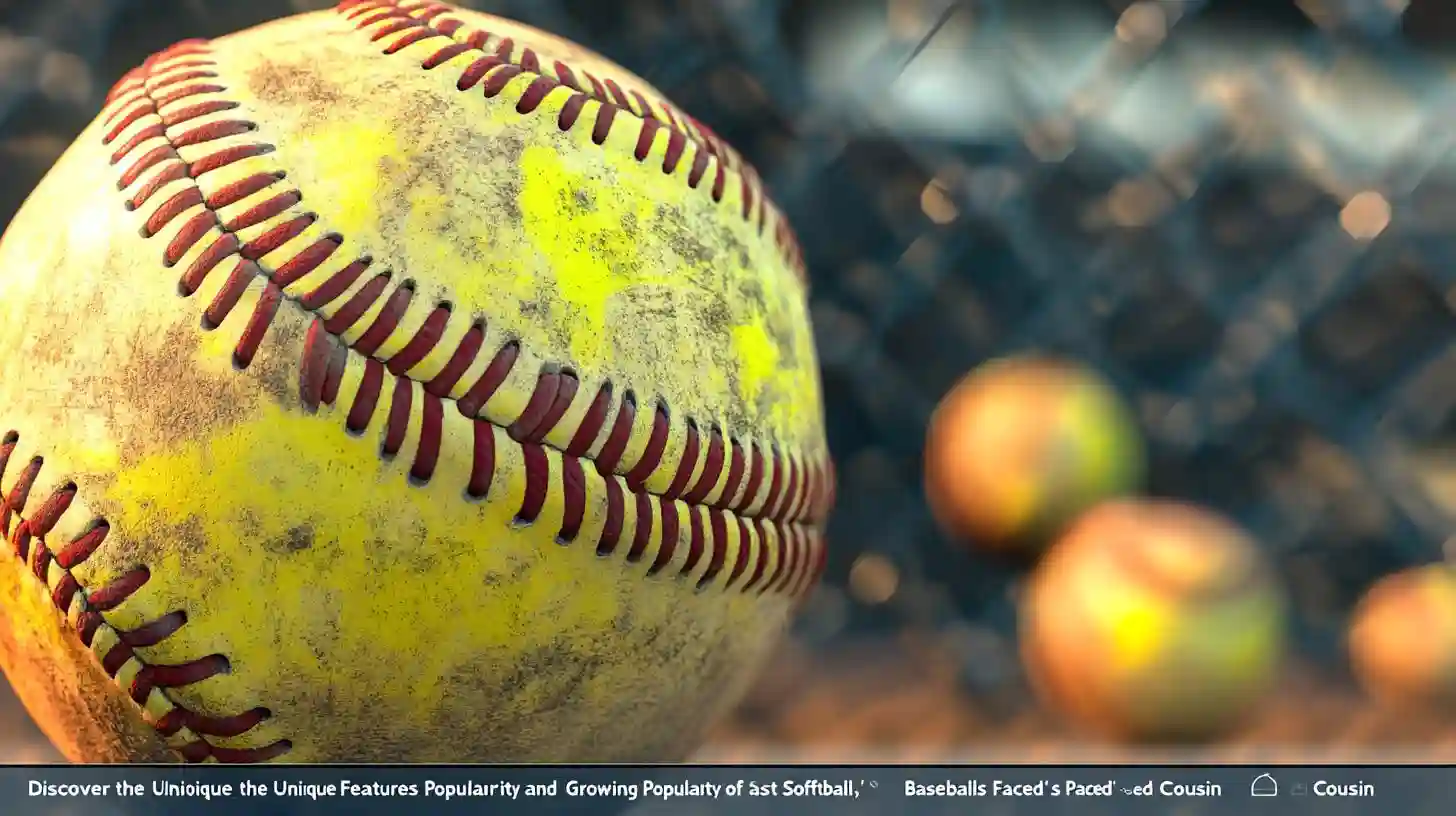
Softball, often overshadowed by its more popular cousin baseball, has been steadily gaining traction across various communities, thanks to its unique features and fast-paced nature that captivate both players and spectators alike. The sport's appeal transcends age and demographic boundaries, making it a beloved pastime in many regions.
One of the most notable aspects of softball is its distinct variations in rules and gameplay. Unlike baseball, where players hit a small, hard ball, softball uses a larger, softer ball that creates a different dynamic. This larger ball allows for varied pitching styles and hitting techniques, contributing to the sport's unique flavor. Moreover, the pitching distance in softball is shorter, allowing for a quicker interaction between the pitcher and the batter. This difference not only speeds up the game but also intensifies the action, making it more thrilling for both participants and fans.
Softball is also characterized by its diverse range of formats, including fast-pitch and slow-pitch variations. Fast-pitch softball is known for its competitive nature, where pitchers can deliver the ball at impressive speeds that challenge even the most skilled batters. On the other hand, slow-pitch softball often emphasizes recreational play, encouraging social interaction and camaraderie among teams. This adaptability makes softball a versatile option, catering to both competitive athletes and casual players looking for a fun way to engage with friends and family.
The growing popularity of softball can be observed globally, particularly in areas where baseball has traditionally dominated. Many cities have embraced softball leagues, offering opportunities for individuals of all ages to participate. These leagues often feature mixed teams, allowing for an inclusive and community-oriented environment. This trend reflects a broader desire for social engagement through sports, where people can come together to enjoy friendly competition, improve their skills, and forge lasting friendships.
Another factor contributing to the sport's increased visibility is its inclusion in major events, such as the Olympics and various international competitions. Softball made its return to the Olympic program, generating enthusiasm among fans and athletes alike. This recognition not only amplifies the sport’s legitimacy but also serves to inspire younger generations to take up the game. With role models gracing the fields, aspiring players are motivated to practice and excel, consequently driving interest in community programs and school teams.
Educational institutions have also played a pivotal role in promoting the sport, with many high schools and colleges establishing competitive teams. This institutional support has fostered a network of dedicated players who are keen to refine their skills and compete at higher levels. Collegiate softball has garnered attention for its unique tournaments, showcasing the remarkable talent of female athletes and providing them with a platform to shine. Such visibility is vital for the sport's growth, as it allows athletes to be recognized and celebrated in ways they may not have experienced before.
The social aspect of softball cannot be overlooked, as the game fosters teamwork, collaboration, and communication among players. Many softball leagues encourage a family-friendly atmosphere, enabling players’ families to engage and interact with one another during games. This sense of belonging and community enhances the experience, making it an attractive option for individuals seeking a balance between competitive sports and personal relationships.
Moreover, the accessibility of softball equipment often makes it easier for newcomers to get involved. Unlike some sports that require costly gear and specialized training, softball simply demands a bat, glove, and a ball. This lower barrier to entry encourages individuals to participate, making the sport approachable for those who may have felt intimidated by the more complex nature of baseball.
The increasing visibility of female athletes in professional softball is another critical aspect of the sport’s rise. Organizations such as the National Pro Fastpitch League provide a professional platform that showcases elite talent. This visibility inspires women and girls to engage in physical activity, promoting a healthier lifestyle while also challenging traditional gender norms associated with sports. As more women take to the fields, the narrative surrounding athleticism continues to evolve positively.
The evolution of softball is not just a matter of changing gameplay but a reflection of broader societal shifts. As more people recognize the joy and benefits of participating in this dynamic sport, it is poised to continue its growth, embracing new players, fans, and communities. The intersection of athleticism, camaraderie, and accessible fun makes softball a captivating game that offers something for everyone. As it continues to flourish, the future looks bright for softball, ensuring that it secures its rightful place in the pantheon of beloved sports.